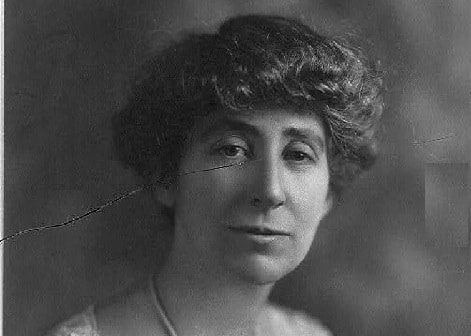Montana has only one representative in the U.S. House of Representatives and yet it has the distinction of having elected the First Woman representative. Montana gave women the right to vote in 1914. In 1917, three years before the rest of the nation granted suffrage to women, Jeannette Rankin ran for Congress and won. She is still the only woman to have ever served in Congress (House or Senate) from the state of Montana.
Rankin was a native of Montana, born near Missoula in 1880. Her reputation as a suffragist, aided by her brother’s pocketbook, paved her path to Congress. When she arrived in Congress, her male colleagues rose to cheer her. When she proposed a committee on Woman Suffrage, her colleagues agreed and appointed her to the committee. It was Rankin who opened the debate on women’s suffrage when it was considered by Congress in 1919, the year the Nineteenth Amendment would finally pass in Congress, after having been submitted every year for 41 years.
The vote to enter World War I occurred during Rankin’s term, and she voted against it, one of 50 no votes out of 423 cast. She was widely criticized nationally but supported by her Montana constituents. However, there was a mining disaster in Butte during her term and the union went on strike. Rankin supported the union members and Montana’s mining companies assured that Rankin would only serve one term.
Rankin spent two decades working for organizations that promoted peace and then in 1940 decided to run for the House once again and was elected. During her term the Japanese bombed Pearl Harbor. Jeannette Rankin was the only member of Congress who did not approve the resolution to enter World War II. This time her colleagues did not cheer her; they booed and hissed.
Not only was Rankin opposed to war, but she was opposed to the manner in which some had the authority to decide that others could be sent to war. “As a woman I can’t go to war,” she said, “and I refuse to send anyone else.” She also argued that, if the country was going to go to war, the older men should be sent to fight so that the young men could “propagate the race.”
She was not re-elected.
After three more decades of working for peace, women, and civil rights, Rankin considered running for Congress again so that she could vote her opposition to the Vietnam War. By this time, however, she was in her 90’s and illness prevented any further stand against war. One could say she was a fierce warrior for peace.


Trackbacks/Pingbacks